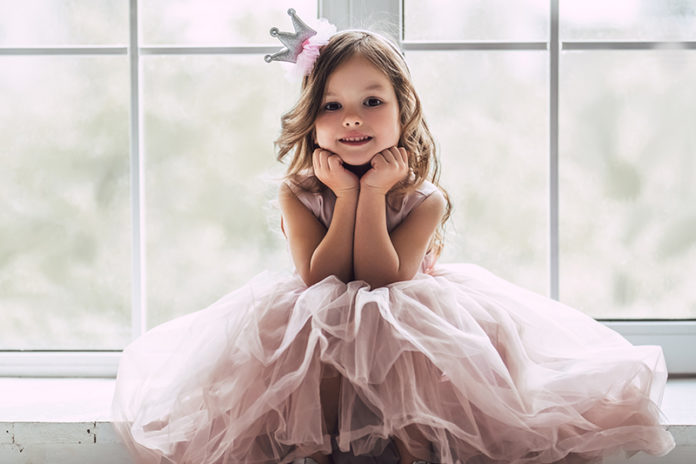Americans made their break with kings, queens and other artifacts of royalty 246 years ago. The people of Britain still support their monarchy, but I suspect most of them, contemplating the fate of Princess Diana and Meghan Markle, would rather swim the English Channel than see their daughters marry a prince.
But Disney movies? From them, you might think that pretty princesses are still the shimmering ideal of femininity on both sides of the Atlantic. From Cinderella to Elsa, these characters remain objects of enchantment to millions of little girls.
That phenomenon elicits worry among parents who want their girls to believe that they can be anything they choose — whether it’s an Olympic athlete, a firefighter or president of the United States. The classic princess image looks as if it were systematically designed to trap America’s daughters in traditional gender roles.
Journalist Peggy Orenstein wrote a book, “Cinderella Ate My Daughter,” where she confessed, “As my little girl made her daily beeline for the dress-up corner of her preschool classroom, I fretted over what playing Little Mermaid, a character who actually gives up her voice to get a man, was teaching her.”
But looks can be deceiving. A new study published in the academic journal Child Development examined the connection between how engaged preschool girls were with Disney heroines and how attached they were to traditional gender stereotypes. Its surprising discovery is that kids who really, really like those princesses tend to develop more egalitarian attitudes.
That’s right. “Girls who highly engaged with princess culture during the preschool years were more likely to view educational opportunities, relationships and careers as being equally important for men and women,” the authors conclude.
This may not come as a surprise to any parents who have raised a daughter in recent decades. My own was as infatuated with these Disney heroines as anyone could possibly be. She dressed up as Cinderella for Halloween at age 3 and refused to let a chilly rain keep her from ringing every doorbell on our block. I’ve seen “The Little Mermaid” and “Aladdin” more times than I can count.
But somehow my daughter didn’t become a passive ball of ornamental fluff. She played varsity ice hockey in high school — and complained that girls weren’t allowed to check. She got a master’s degree and went on to a professional career. She runs marathons. And heaven help the man who treats her with dismissive condescension.
My experience is not unusual. The generation of women that earns the scorn of conservatives for its abundance of woke social justice warriors is the same one that was saturated with Disney heroines. I would bet a glass slipper that Alexandria Ocasio-Cortez, Megan Rapinoe and Lizzo reveled in the exploits of Belle, Jasmine and Co.
They may have even owned Barbies, which are also often seen as a malign role model. One day, when my daughter was small, she was playing with one while her mother chatted in the same room with a young woman of pronounced feminist convictions.
After watching this spectacle for a while, the guest frowned and announced what was troubling her: “I will never forgive my mother for not letting me have a Barbie.” The ubiquity of those dolls among young girls has not visibly impeded their willingness, as grown women, to claim their rights.
Maybe we shouldn’t worry too much that popular culture and corporate marketing will warp our children’s minds. Girls, it seems, manage to figure out the difference between fantasy and reality. Just because they adore Disney princesses doesn’t mean they’ll try to emulate them, any more than boys who love Spider-Man will grow up to swing from skyscrapers.
Many modern women, keep in mind, choose to concentrate on child-rearing and homemaking. The operative word is “choose.” One thing they learn from Disney princesses is to follow their dreams regardless of what others think.
Girls have flesh-and-blood role models around them — mothers, stepmothers, grandmothers, aunts, teachers, coaches and more. (Note: Men in their lives may also serve this purpose.) They can look to the news to find others, whether it’s Kamala Harris or Nikki Haley. And once they outgrow Disney princesses, they can find other heroines on screen, from “Captain Marvel” to “The Queen’s Gambit.”
Maybe the most important lessons from Disney princesses are that females are important enough to make movies about — and that the lives of all girls are meaningful and rich in possibility. No tiara required.





























